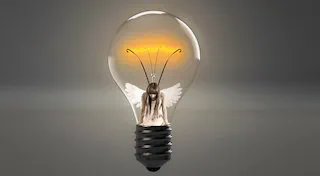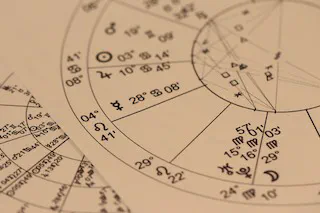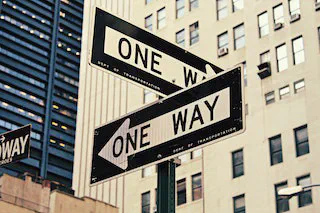
The myth of perfect choices
- Matthieu P.J.
- Personal development
- October 20, 2022
“The grass always looks greener in the field next door…” and “Humans pursue endless desires that make them suffer”. Those two sayings sounds familiar? Maybe, but can you truly measure the depth of what they are talking about?
I’ve confronted what I call the myth of perfect choices many times in my life. It starts with a faint voice that whispers “Eh, don’t you think you’ll be happier doing that / owning that / being that?”. And sure enough, a part of me wanted badly to listen to that voice. Because I was sort of blasé by the way my life turned out to be, because it gave me something to spend my energy on, because it was tempting! So, what happened? I followed the voice and made some changes in my life. I thought I was dissatisfied because of some external factors, that something was wrong with it all and that I’d be happier when X happens. Tragically, whenever you catch yourself thinking “oh yeah, I’ll be happier when X” you can be certain that it’s the ego talking! My ego’s personal favourite: “For sure, I’ll be finally happy when everything is perfect in my life”. Guess what, it’s never happened yet! Ouch. The way things truly work is: if I allow myself to be happy today , then the shift in my vibrations will change my perception of everything around me. It’s a complete paradox1 for the ego to realise that “If I allow myself to be happy, then everything will be perfect in my life”! It will be perfect because it will seem perfect to you; because remember: your perception of reality depends on you and you alone.
What will happen when you explore a different choice—i.e. a different alternative to what you already have—is that you’ll start to give context to your first choice. A context you lacked, because all is relative and no absolute truth can stand2. But, soon enough, you’ll realise that the new choice has got its own list of pros and cons. This occurs when you go beyond appearances and go deep enough into things3. You may even realise that, overall, you were better off globally if you had not moved on. Ironic, I know! Let me illustrate with the choice of where you live.
I’ll talk specifically about the country in which you live because I’ve investigated the topic many times over the years. I’ve travelled to about 50 countries; among that I lived and worked in 5 of them on 3 continents. And I’ve come to realise that there’s no perfect country to live in… each has got its own mix of pros and cons and it entirely depends on what you value the most. Being French and British I’ll compare France and the UK. What I love about France is: the food (the general quality and taste of it), the fact that many people are quite educated, the sense of intellectual debate, the healthcare system and the weather (in the southern part of the country especially). What I love about the UK is: the sense of fairness and how courteous people are to each other (e.g. when driving), the very down-to-earth and practical attitude of dealing with a problem, the—relative—simplicity and efficiency of government procedures, and the way of conducting business. If I could, I would create the perfect country with the best of both. Except that it doesn’t work like that… Things are what they are as a whole, you cannot pick and choose.
So, back to my point, had I lived in France my entire life, I could never have realised how fantastic the food is, that the dairy section in the average supermarket is actually obscenely large, and that some places in the country are the most beautiful I’ve seen in the entire world! I just did not have context. It doesn’t matter that you grew up in a paradise, until you’ve been out of it, you’ve got nothing to compare it to.
The same goes with… your job, your income, your friends, your partner etc. With people it can be quite tempting also to lose yourself thinking at times: “oh, what if I could meet someone… that is a good cook like ex #1, as athletic as ex #2 and as emotionally balanced as ex #3”. Nonsense! People are whole and you can’t customise them before placing an order. Laughter.
Does that mean we should settle for whatever we have, and never dream of changing? Absolutely not! What I am just saying is that our ego can lure us into long and difficult pursuits, whereas a bit more thinking and introspection could have saved us the journey. Well, it always seems obvious on the finishing line, doesn’t it? But when you start the race, it’s all fuzzy… But, isn’t that the beauty of life, after all? Looking back and laughing at our younger self, the one who put so much energy onto a journey that leads sometimes right where it started. In this universe of duality, we often want to explore the next good thing. That will add more context to our life for sure. But, sometimes, we may end up making the same decisions than long ago; except that now, it’s done out of consciousness—and not ignorance anymore.
I talked about decision making already. Did you know that your logical mind cannot decide between alternatives when there are too many parameters? That is simply not manageable by your brain. When there are too many permutations and possibilities, your brain just bugs and cannot compute. In fact, it’s much easier to make decisions when you limit the selection criteria to a few, let’s say three4. Assume for example that you want to buy something an Amazon. Initially, you compare a few items and you think the choice is obvious. Mmm, except that 2 minutes of reading later, you’re not so sure anymore. Now, you start comparing the technical specifications, then check the marketing information, then finally the reviews. Before you know it, you’ve spent 20 minutes reading though pages and you’re even less sure what decision to make than after the initial 5 minutes. Sounds familiar?
In the end, all that matters is not to make the best decision—because that’s a myth, there isn’t any. It’s always about making the decision that is right for you at this moment, with the data available to you. So it’s time to accept—finally—that there are no perfect choices.
When you use your intuition, it will speed up the decision process. What is intuition? It can come in many ways: vague sensations, images, feelings in the body, words etc. It’s quite unique to each one of us. But there is a deep sense of knowing that is beyond the thoughts, beyond the ego mind. The so-called ‘gut feeling’ can contradict your logical mind at times. But, if you are honest with yourself about those times when you ignored it, you’ll realise retrospectively that the gut feeling was trying to warn you about something—and that it was right! Intuition taps into an intelligence that is beyond the physical, something that cannot be put into words.
When we connect to our intuition, we will know what the right decision is for us. It saves us the journey via the logical mind which, as I explained, is prone to uncertainty. There’s never enough data to make a rational choice. You’re better off following your intuition. Of course, that requires honing that skill and listening to the inner voice and having the faith and courage to follow it, even when it seems at odds with what a normal person would do—or society at large.
When you look back at your life, you will recognise moments when your intuition stepped in to help. It can be especially at critical moments e.g. for big life decisions. I recall having a deep sense of knowing about making a move to another country, and leave the place where I was at the time. It worked out very well in the end: much good came out of it, in ways I could not have possibly fathomed.
Finally, you need self-confidence to tap into your intuition efficiently. Messages can come to you, but if you are unsure that you can trust them—and ultimately, that you can trust yourself—how are you to take them seriously? It’s a long journey to get to trust our intuition, but it’s certainly a rewarding one. Once we get there, we know and we trust that we know. Life can then be lived from a different perspective. Intuition will be heightened over the years, as we connect more and more to our inner self. Taking baby steps is a good strategy: practicing on small and low impact choices, and then moving up to the big decisions. That takes introspection and journaling is an excellent supporting tool.
In fact, many higher truths turn upside down what the rational mind believes! It’s like looking at the mirror image of what you thought to be true and realise “oh well, how could I have been wrong for so long about that?!” ↩︎
That is because this universe is built using duality at its foundation. There’s no hot without cold, no up without down etc. ↩︎
Which is why, for example, a cursory read on Wikipedia will never make you a master of any topic. It takes months and years of practice to go deep into something. Time must be spent, there’s no way around it. But beware, because these days so many people fall for the illusion of knowing things whereas they merely have a high level understanding of it. ↩︎
A key question being: how do you select the few key criteria that really matter to you? ↩︎


